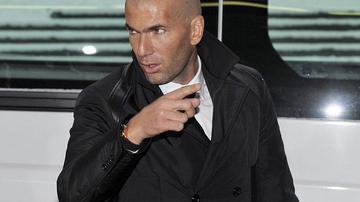
It implies the big importance that some people attribute to probably the most popular global sport. However, in the light of the recent corruption scandals, including FIFA, UEFA and others, violations of financial fair-play by different football clubs and an increasingly market- and profit-oriented football industry, global belief in football is slowly decreasing. Is there still a space to believe in ‘the beautiful game’?
My first intention was to write about the new revelations by the Daily Telegraph about bribes and corruption in FIFA surrounding the Qatari bid for the 2022 World Cup. However, I decided not to – the international media has already covered the issue a lot and I’ve written a piece about it in my blog. Instead, I want to share a positive example of a project that exploits popularity and values of football for the good and might therefore help restore our faith in the game. It’s called Football for Peace International (F4P). It was established at the University of Brighton in 2001 and it operates on the voluntary basis on the international level. The project approaches football in a bit different, non-traditional way – children are not taught football skills, but values such as trust, respect, responsibility, equity and inclusion. For example, children play different teambuilding games through which they learn how to trust each other and how to be responsible to one another and their teams. Teams are normally mixed in terms of gender, race, ethnicity, religion etc. so that children understand the importance of inclusion, as well as that they develop friendships with people who are different from them and even overcome prejudices and stereotypes. During the game, they are supported to help each other, especially the opponents, shake hands before and after the game, not to be too competitive, to pass the ball to all the co-players equally etc. The winner is not proclaimed just on the basis of goals scored, but according to the fair-play points that are given to the teams.
Such values based approach to learning is of high significance especially in the societies or between different social groups that are in conflict or bad relations. That’s actually why the initial idea developed – to use football to bring together children from divided communities, specifically from Palestine and Israel and later Protestants and Catholics from Northern Ireland. Football for Peace has held workshops and trainings in the UK, in Northern Ireland, Israel, Germany, The Gambia, Czech Republic, South Korea, South Africa and it’s spreading. The F4P camps and events consist both of football or generally sport-related games and off-pitch activities that together provide a platform for integration and inclusion of children. I am sure that when Israeli children spend a week with their peers from Palestine in a positive environment centred on values such as friendship and respect, they will be less likely to hate each other in the future just because of their ethnicity. Programmes that promote inclusion, respect, equality and similar values through fun, relaxed, informal and popular activities such as football or other sports and leisure games therefore bear a big potential to eliminate/prevent stereotypes and to bring children together regardless of their race, gender, religion, ethnicity, nationality, sexuality and other categories of identity.
Critics of sport-for-development sector normally warn about the ideological underpinnings of such projects that stem from the Western neo-liberal values. While this concern should always be taken into account when conducting the projects abroad and cultural differences and local socio-political situation should play the leading role in framing such projects, I don’t think F4P is trying to impose any ‘Western values’ or interfere too much with local culture – it operates in both Western and non-Western societies. The aim is to teach children the very basic values that are on one way or another inherent to the majority of societies and that provide the basis for human dignity. The project furthermore trains the local coaches how to use values based approach, so that even when the F4P event or camp is over, the local teachers and coaches are able to continue with the programme. It’s about using the binding power of football to promote understanding and tolerance as the key to good social and even international relations. Social relations are always a product of wider social, political, cultural and ideological factors and I strongly agree with a very wise man, Nelson Mandela, who wrote: "No one is born hating another person because of the colour of his skin, or his background, or his religion. People must learn to hate, and if they can learn to hate, they can be taught to love, for love comes more naturally to the human heart than its opposite". And if people can learn how to love and respect through something so simple as football, I believe in and love that sport even more. Football is no saint of course – but it’s on us, people, to bring out its positive potential.
Tamara Juričič, University of Brighton






























































